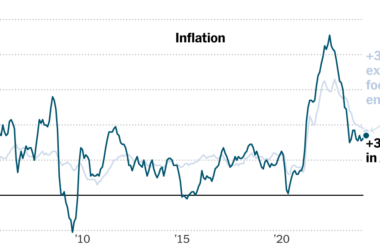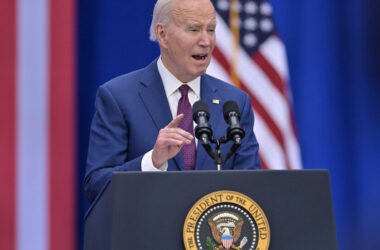The United States and 21 other countries pledged on Saturday at the United Nations climate summit in Dubai to triple nuclear energy capacity by 2050. They see the revival of nuclear power as crucial in cutting carbon emissions to near zero in the following decades.
Supporters of nuclear energy, which currently supplies 18 percent of electricity in the United States, believe it to be a clean, safe, and reliable complement to wind and solar energy. However, a major challenge lies in securing funding. Last month, a small nuclear reactor developer in Idaho announced the cancellation of a project that was expected to be part of a new wave of power plants. The escalating interest rates and inflation had caused the cost of building the reactors to rise from $5.3 billion to $9.3 billion.
Among the 22 countries that signed the declaration to triple capacity from 2020 levels were Britain, Canada, France, Ghana, South Korea, Sweden, and the United Arab Emirates.
Speaking on the matter, John Kerry, President Biden’s climate envoy, mentioned the availability of “trillions of dollars” for investment in nuclear, emphasizing that no one is claiming it to be the sweeping alternative to every other energy source. However, the science has shown that reaching net-zero by 2050 is unattainable without some nuclear contribution.
President Emmanuel Macron of France labeled nuclear energy, including small modular reactors, as an “indispensable solution” in efforts to combat climate change. France stands as Europe’s leading producer of nuclear power.
Mr. Macron and other leaders, such as Prime Minister Ulf Kristersson of Sweden, urged the World Bank and international financial institutions to assist in financing nuclear projects. Mr. Kristersson stressed the need for governments to “share the financial risks” to bolster conditions and provide additional incentives for investment in nuclear energy.
While world leaders have labeled nuclear as the most effective alternative to fossil fuels, some climate activists have expressed doubt.
Masayoshi Iyoda, an activist from Japan with 350.org, an international climate action campaign, referenced the nuclear disaster at Fukushima in 2011 and stated that nuclear power is a hazardous distraction from decarbonization goals. “It is simply too costly, too risky, too undemocratic, and too time-consuming,” he declared in a statement.
“We already have cheaper, safer, democratic, and faster solutions to the climate crisis, and they are renewable energy and energy efficiency,” Mr. Iyoda added.







